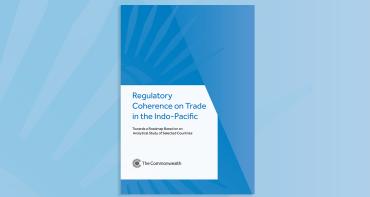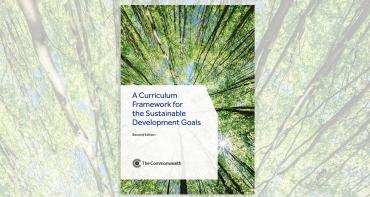We are ready to support countries through tough post-Brexit trade negotiations, Secretary-General Patricia Scotland will tell Commonwealth finance ministers next week.

We are ready to support countries through tough post-Brexit trade negotiations, Secretary-General Patricia Scotland will tell Commonwealth finance ministers this week.
The Secretary-General will meet ministers during the annual Commonwealth Central Bank Governors and Finance Ministers Meetings in Washington on 5th and 6th October. Among the agenda items the impact of Brexit is "a key concern."
In advance of the meetings the Commonwealth is today (Wednesday) publishing "
Secretary-General Scotland said: “The Commonwealth is 53 countries and the challenge of Brexit faces all of them. Member states warned of the possible knock-on effect on key industries in the Commonwealth before the vote. The task for us now is to help the Commonwealth move from shock to solutions.
“Today we're publishing an analysis of the possible economic implications on specific Commonwealth countries. But it also begins to explore the opportunities that can result from Brexit, if countries have the right support.
"Our role is to be an honest broker. We have a team of trade and economic experts examining all angles of the likely impact of the UK’s decision to leave Europe on Commonwealth countries and that will form a key part of our discussions in Washington DC this week."
The latest Commonwealth paper estimates the UK to be the 4th most important market behind USA, China and Japan, for top Commonwealth exports. This is despite a 1.2 per cent fall last year in the share of Commonwealth exports coming to the UK.
“Our research shows that the UK is a very important market for many Commonwealth countries,” said Commonwealth head of economic policy Reginald Darius. “So obviously we are concerned about how an unfavourable post-Brexit UK trading regime and a sustained reduction in the pound will affect countries.
“Botswana, Seychelles, Belize, Bangladesh, Mauritius and Sri Lanka could take a big hit, because the UK accounts for more than 10 per cent of their total exports. Botswana relies on the UK market for more than half of its total exports.”
The paper also warns of the potentially negative impact on aid to small states and Least Developed Countries (LDCs). Currently the UK contributes 10 per cent of its aid budget to EU institutions.
It questions “what will happen to the allocation of EU aid to Commonwealth small states and LDCs that depend heavily on the EU’s development assistance” after Brexit.
Secretary-General Scotland said: “There are the big questions. How are Commonwealth developing countries going to fare in a post-Brexit world? What does a weaker pound mean for UK remittance flows from diaspora communities? In 2015 migrants in the UK sent $12 billion worth of remittances to their families back home.
“This is why the impact of Brexit is a priority agenda item at our meetings this week.
“What is key is that this report begins to put us on a path to solutions. It highlights the fact that the Commonwealth already has strong programmes to help countries improve their trade policy so they are more competitive.
"We have a globally recognised debt management programme, and our advocacy has been helping countries secure development finance and deal with economic shocks.
“Our mandate now is to target and tailor this support to ensure no Commonwealth country suffers unduly as a result of Brexit.”
The paper, she added, also promises a great potential for post-Brexit tade. The report shows that Commonwealth members are currently providing eight of the UK’s top 10 imports.
“Though their shares in these goods markets are relatively small, there is scope for the UK to really boost its trade with other Commonwealth countries.”
Last year a Commonwealth Secretariat flagship trade report showed how historical ties, long established trading relations, similarities in legal structures and a common language makes trading between Commonwealth countries 19 per cent cheaper than with other countries. But the Secretary-General stressed that political will was needed on all sides to take advantage of these opportunities.
“This is why we are putting these issues to members. We anticipate that decisions made at our first ever trade ministers meeting next year will have global impact.”
Photo caption: Figure 4 from the report shows key statistics on UK–Commonwealth trade in goods



